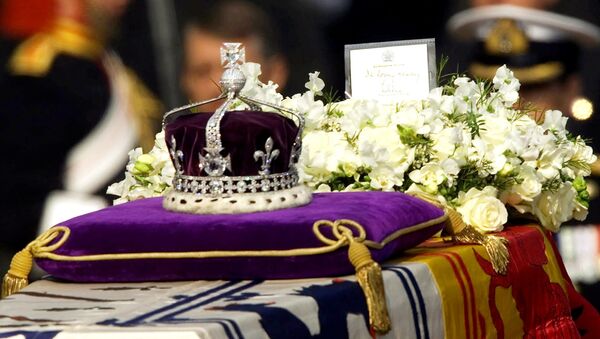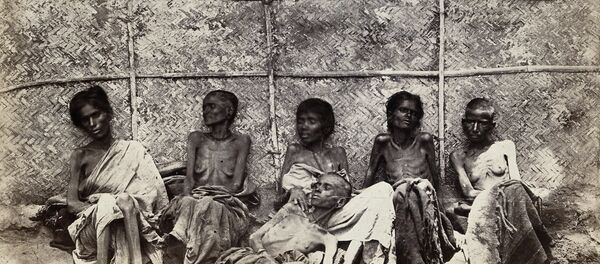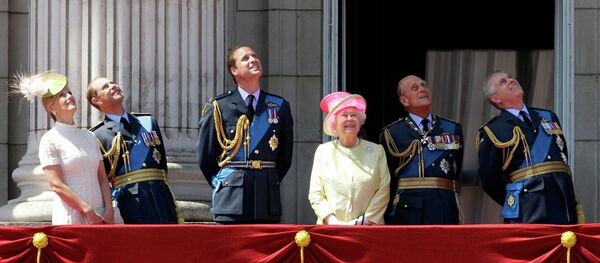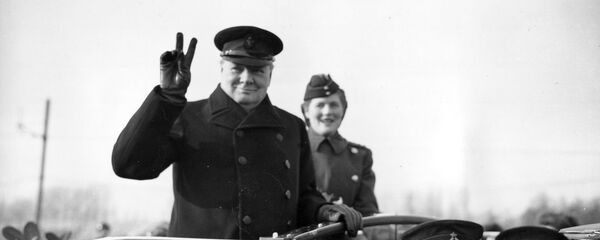Mr. Vaz was referring to the "more negative aspects" of Britain's colonial rule in India. Vaz, who has been campaigning for the return of Koh-i-Noor to India for many years, repeated his call after a speech by the Indian Congress MP Shashi Tharoor at the Oxford Union debating society. Video of that speech went viral, and in it Tharoor brilliantly and wittingly argues that Britain should pay reparations to India for two centuries of colonial abuses.
Tharoor debunked several commonly cited arguments that are used to justify British colonial rule of India from 1757 until the country’s independence in 1947. India’s share of the world’s economy, he said, was 23% when the British arrived, but a paltry 4% by the time they were forced to leave.
"It’s a bit rich to oppress, enslave, kill, torture, maim people for 200 years, and then celebrate the fact that they are democratic at the end of it," Tharoor said, to thundering applause from the audience.
His impassioned call for reparations – as a way for Britain to say "sorry" for its brutal colonial rule — was endorsed by a number of Indian politicians, including Prime Minister Narendra Modi, who is to visit Britain in November. One Indian columnist, Minhaz Merchant, calculated that Britain owes India close to $3 trillion in reparations.
Keith Vaz, while endorsing the idea of British responsibility, told Sputnik that:
"Pursuing monetary reparations is an enormously difficult task, given that it would be an attempt to quantify the impact of colonial rule. This is particularly so in the current context, where India is a rising global power, and the United Kingdom not being in the same position as it was a century ago."
However, Mr. Vaz said, the return of the Koh-i-Noor diamond "would be a highly symbolic gesture which I believe would go a long way in making up for the past."
The issue will definitely come up during Modi’s visit to Britain, as it did when his British counterpart, David Cameron, visited India in 2013. The British premier has put in a lot of effort recently to court the rising global power. Keith Vaz told Sputnik that Modi’s visit would be an excellent opportunity for Cameron to make a highly symbolic gesture of goodwill.
"This is not an issue which would have a particular influence on UK-Indian trade, but it is, in some senses, a long-term underlying issue in terms of diplomatic and cultural relations," Vaz said.
"I see the diamond as holding significant cultural and historical symbolism of the colonial period, which will continue to be the case until it is returned.'
For Vaz, whose family roots are in India, the return of Koh-i-Noor has personal significance.
"I have long seen its return as a decision which would bring so much joy to the people of India, as we finally break away from the past and allow our nations to forge a special relationship as true partners."
London has repeatedly rejected suggestions for the return of the stone, claiming it was presented to Queen Victoria in 1850 as a gift from loyal subjects. But historic accounts show that the diamond was treated by Lord Dalhousie, governor-general at the time, as a spoil of war. He described the diamond as being "surrendered directly from the hand of the conquered prince into the hands of the sovereign who was his conqueror."
Acknowledging the diamond as loot, rather than a gift, would open the legal door for its return.
Another argument against the return of the stone is that this would open a Pandora’s box of claims on British colonial loot from other former colonies and dependencies.
While one can certainly see the basis for that argument, Keith Vaz told Sputnik that "on a case by case basis, there would be adequate or inadequate justifications for the return of valuables acquired in the colonial period. In the case of the Koh-i-Noor diamond, I believe there is such a justification."





